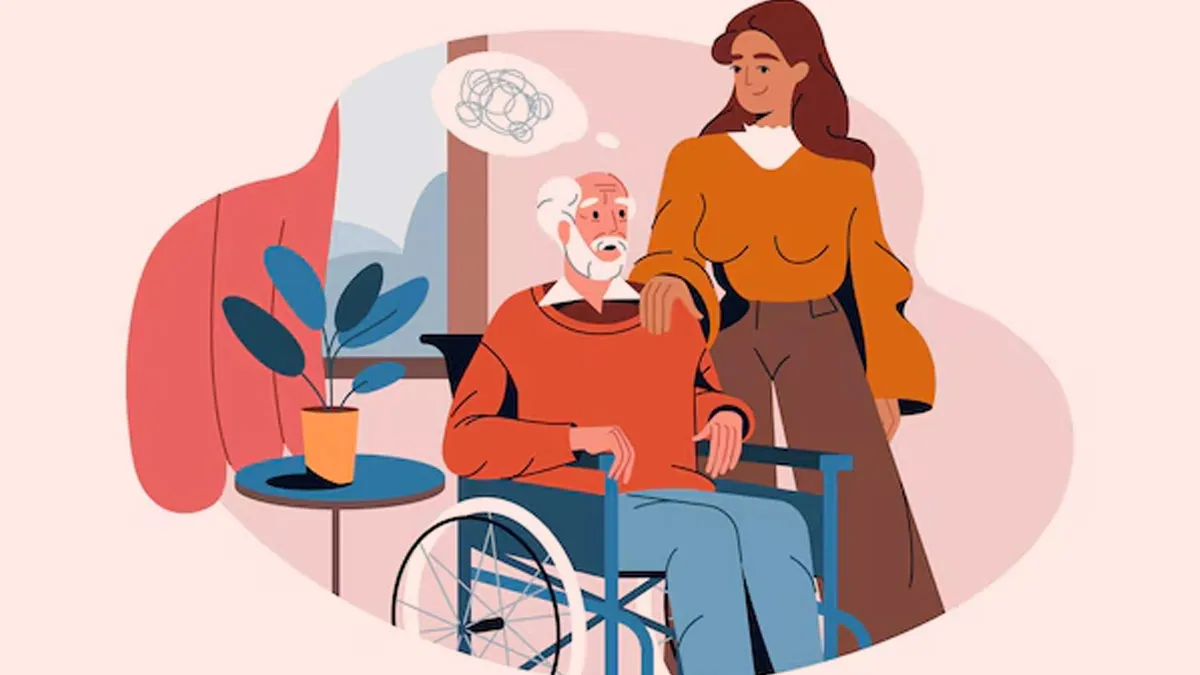
Caring for a loved one with dementia can be both rewarding and challenging. As the disease progresses, it’s common for individuals to experience anxiety and aggression due to confusion, frustration, or difficulty communicating. These behaviours can be overwhelming for caregivers, but understanding their root causes and adopting effective strategies can make a world of difference. Here are 10 practical tips from experts to help caregivers manage aggression and anxiety in dementia patients while maintaining a calm and supportive environment.

Understanding what sets off anxiety or aggression is the first step. Dr Abhinit Kumar, psychiatrist, Sharda Hospital, explains that common triggers include hunger, discomfort, overstimulation, or changes in routine. “The key is prevention and early intervention,” he says. By identifying and addressing these triggers promptly, caregivers can often prevent emotional distress before it escalates.
A predictable routine can help reduce confusion and anxiety. Dr Kumar suggests maintaining a calm environment and using clear, simple communication. For example, instead of asking open-ended questions like, ‘What do you want to eat?’ offer choices: ‘Would you like tea or juice?’ This approach minimises frustration and makes decision-making easier.
When aggression arises, engaging in an argument will only make things worse. Neha Sinha, dementia specialist, CEO, and co-founderEpoch Elder Care, advises caregivers to avoid confrontation. “In moments of escalating aggression, it’s vital not to engage in conflicts. This helps prevent the situation from becoming more intense,” she explains.
Redirecting focus can be a powerful tool for de-escalating tension. Dr Kumar recommends shifting the individual’s attention to calming activities like listening to music, looking through a photo album, or engaging in light physical activity. “These activities can help soothe agitation and restore a sense of calm,” he says.
Sometimes, words aren’t enough. Nonverbal cues like a reassuring touch, a warm smile, or gentle eye contact can provide comfort and reassurance. Dr Kumar emphasises the importance of these gestures in moments of distress.
Don't Miss: How Alzheimer’s Begins Years Before Symptoms Surface: Expert Shares 7 Key Insights

A simple change in environment or a favourite activity can work wonders. Neha Sinha suggests, “A peaceful change of scene or a beloved activity can help shift their focus and offer a sense of calm.” Even light exercises like walking or seated movements can improve mood and cognitive function.
Safety is the top priority when aggression escalates. Dr Kumar advises caregivers to stay calm, give the individual space, and avoid arguing. “Lowering your voice and maintaining a non-threatening posture can help de-escalate the situation,” he explains.
Sometimes, a simple apology can defuse a tense situation. Neha Sinha highlights the power of this gesture: “Apologising instantaneously can help reduce anxiety or frustration in the moment.” It’s not about admitting fault but about restoring calm and connection.
Caring for someone with dementia is emotionally and physically demanding. Neha Sinha stresses the importance of self-care: “Caregivers should seek support, whether through respite care, counselling, or family help.” Taking care of yourself ensures you can provide the best care for your loved one.
Above all, patience and empathy are essential. Both Dr Kumar and Neha Sinha emphasise that aggressive or anxious behaviours are symptoms of the disease, not intentional actions. “It’s the disease, not the person, reacting this way,” Dr Kumar reminds us. Neha Sinha adds, “With kindness and mindful initiatives, caregivers can provide holistic care and support.”

Managing aggression and anxiety in dementia patients requires patience, understanding, and a proactive approach. By identifying triggers, creating a structured environment, and using calming strategies, caregivers can significantly reduce distress and improve their loved one’s quality of life.
Don't Miss: 7 Lifestyle Choices to Lower Your Dementia Risk, According to Expert
For more such stories, stay tuned to HerZindagi.
Image Courtesy: Freepik
Also watch this video
Herzindagi video
Our aim is to provide accurate, safe and expert verified information through our articles and social media handles. The remedies, advice and tips mentioned here are for general information only. Please consult your expert before trying any kind of health, beauty, life hacks or astrology related tips. For any feedback or complaint, contact us at [email protected].